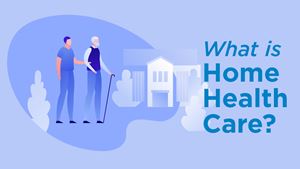
If you or a loved one is dealing with an injury or illness that makes it difficult to leave home without assistance, you may benefit from home health care.
Home care services are delivered directly in a patient’s home (or an assisted living or residential care facility) by a licensed medical professional. Typically, patients we see have either been recently discharged from an acute or sub-acute care facility (a hospital or a skilled nursing facility) or are working with their provider to try to prevent a hospital visit or stay. The Rochester Regional Health Home Care (formerly "Lifetime Care") team has provided compassionate, personalized care to adults and children since 1960, and our quality of care has been among the top-ranked home care groups in the nation.
Home health care is focused on treating an illness or injury in the comfort of your home. Getting care right in your home means that you can:
Home health care is typically more convenient, less expensive and can be as effective as the care you might receive in another setting.
Depending on the type of care you need, your nurse or therapist will work to provide and oversee the services for which you qualify and need in your home. Common services include checking your vitals like blood pressure and temperature, teaching you or your caregiver how to care for a wound, or administer an IV or injection, showing you how to take your medicines, creating a plan to help improve balance or teaching you about ways to help control your symptoms.
Home health aides can also help with basic personal needs, like bathing, walking and dressing.
Home care professionals can help to manage: